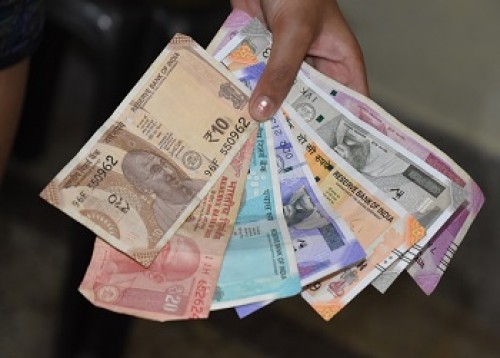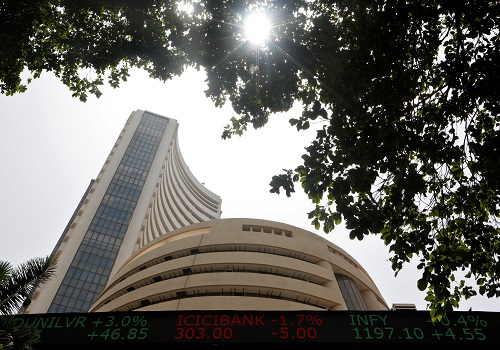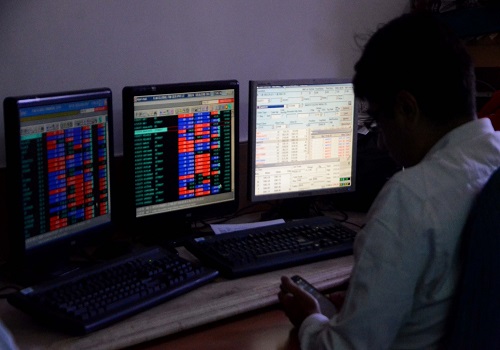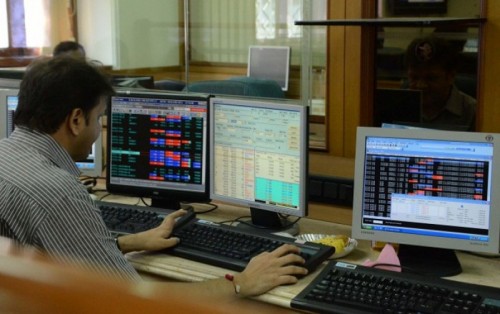Opening Bell: Markets likely to get flat-to-positive start
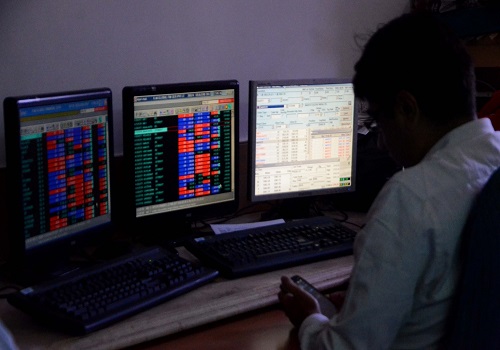
Follow us Now on Telegram ! Get daily 10 - 12 important updates on Business, Finance and Investment. Join our Telegram Channel
https://t.me/InvestmentGuruIndiacom
Download Telegram App before Joining the Channel
Indian markets ended lower on Monday and extended losses for a third straight session, as concerns over fresh COVID curbs in China and a hawkish Fed policy dented demand for riskier assets. Today, markets are likely to get flat-to-positive start amid mixed global cues. Some support will come as India and the European Union (EU) signed an agreement on cooperation in areas such as climate modelling and quantum technologies, building on the Trade and Technology Council launched by the two sides earlier this year. Traders may take note report that the Confederation of Indian Industry (CII) has suggested a cut in personal income tax rates to revive demand -- a move which would benefit 5.83 crore taxpayers who have filed returns for assessment year 2022-23. CII further suggested reducing the highest 28 per cent GST slab on consumer durables. Meanwhile, Finance Minister Nirmala Sitharaman will hold pre-budget consultations with her state counterparts on Friday. However, some cautiousness may come as rating agencies Crisil and Icra revised down their India growth projections for the current fiscal and the second quarter mainly due to the ripple effect of slowdown in global growth and mixed crop output. Crisil downgraded the India growth forecast by 30 bps to 7 per cent while Icra pegged the economic expansion at 6.5 per cent for the second quarter of FY2022-23. Traders may be concerned as foreign institutional investors (FIIs) net offloaded shares worth Rs 1,593.83 crore on 21 November, according to the provisional data available on the NSE. Metal stocks will be in focus as Union minister Jyotiraditya Scindia said removal of export duty on steel products will lead to a new era of growth for the domestic steel industry which has gained footprint internationally. There will be some reaction in fertilizer industry stocks as the country imported 23.4 lakh tonne of fertilisers, including urea and Di-ammonium Phosphate (DAP), in October this year. Besides, Kaynes Technology shares will debut on bourses. The Electronics manufacturing company shares are expected to put up a stellar performance despite recent volatility and consolidation in the equity market.
The US markets ended lower on Monday as a slide in technology companies offset gains elsewhere in the market. Asian markets are trading mixed on Tuesday amid concerns over Covid cases in China and hawkish Fed commentary.
Back home, Indian equity benchmarks ended Monday on a negative note, dragged down by IT, Power and Utilities stocks, while the likelihood of tighter U.S. monetary policy and worsening COVID-19 infection numbers in China weighed on sentiment. Markets made weak start and stayed in red for whole day as traders were concerned as the latest payroll data released by the Employees’ Provident Fund Organisation showed the number of fresh formal jobs created fell for the second consecutive month in September, declining 9 per cent sequentially to 930,000. Enrolment of new female subscribers fell faster (11.39 per cent) than their male counterparts (8.13 per cent) in September, compared with the previous month. Some concern also came as the provisional data available on NSE showed that foreign institutional investors (FIIs) net offloaded shares worth Rs 751.20 crore on 18 November. Markets remained under pressure in late afternoon deals amid private report that the Indian economy which claimed the title of the fastest-growing major economy in the previous fiscal is likely to lose its momentum in 2023 owing to higher borrowing costs and fading benefits from the Covid pandemic reopening. It stated gross domestic product may expand by 5.9% in the calendar year 2023 from an estimated 6.9% this year. Sentiments remained downbeat as the gross fiscal deficit of the Indian states rose nearly 79 per cent after the lockdown. According to the latest data from the Reserve Bank of India (RBI), the fiscal deficit rose from Rs 5.2 trillion in FY20 to Rs 9.3 trillion in 2020-21 (FY21). Traders overlooked data showing that retail inflation for farm and rural workers eased marginally to 7.22 per cent and 7.34 per cent, respectively, in October compared to September 2022, mainly due to lower prices of certain food items. Markets participants also paid no heed towards former Niti Aayog Vice-Chairman Rajiv Kumar’s statement that India will still grow at 6-7 per cent in the next 2023-24 fiscal even as the economy may be affected by uncertain global conditions. Finally, the BSE Sensex fell 518.64 points or 0.84% to 61,144.84 and the CNX Nifty was down by 147.70 points or 0.81% to 18,159.95.
Above views are of the author and not of the website kindly read disclaimer










Tag News

Weekly Market Analysis : Markets strengthened recovery and gained nearly 2% in the passing w...





